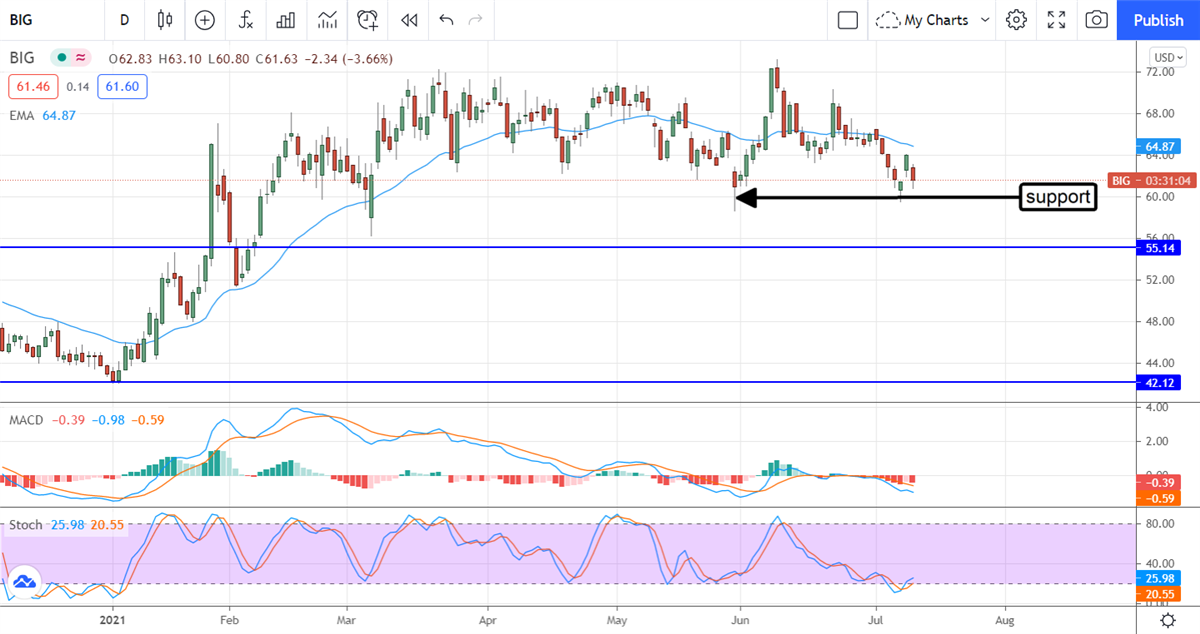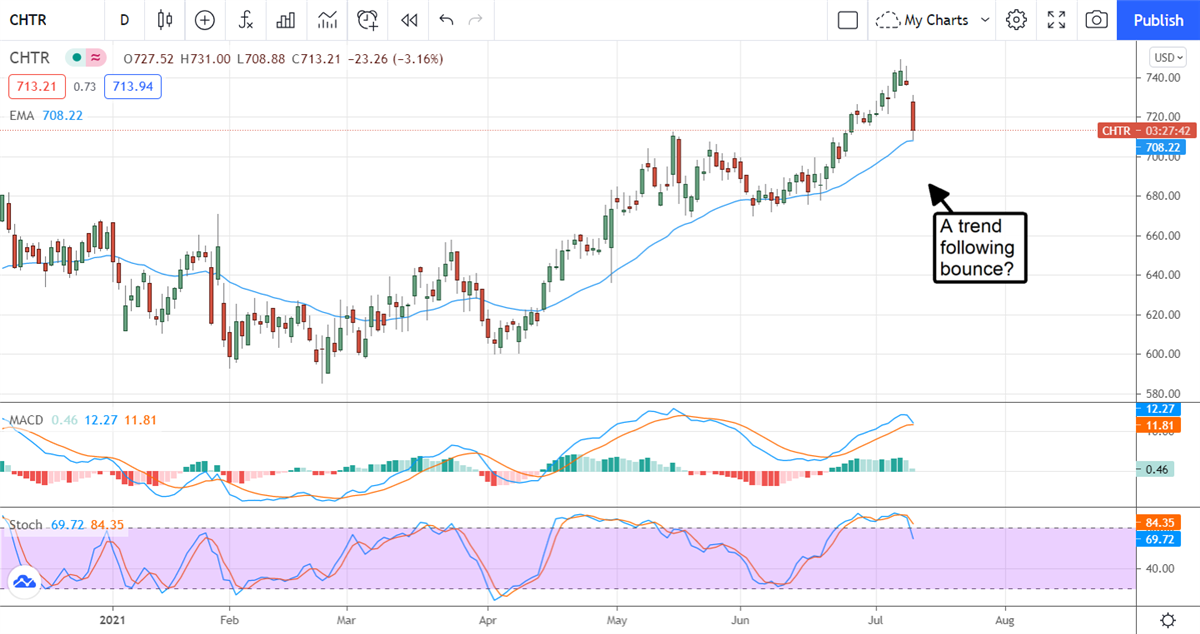3 Downgrades You Might Want To Buy A dip in analysts confidence is your opportunity to buy these strong company's.
This story originally appeared on MarketBeat

The Bar Has Been Lowered For These Strong Companies
In our never-ending quest to root out the most interesting, and the most lucrative, investment stories on the market we've run across three downgrades we think you might want to buy. These downgrades aren't typically the kind of thing we want to see happening in stocks that we like but think these will ultimately turn into buying opportunities. The number one trend in earnings since the pandemic even began has been an underestimation. The analysts underestimated the resilience of the US economy during the shutdown and have grossly underestimated the strength of the rebound in the time since. The only question for us is how much better than expected these companies will report when it's their turn to report second-quarter earnings.
Big Lots Is The Most Underestimated Retail Stock On The Market
Big Lots (NYSE: BIG) has been hands down one of the biggest winners from the pandemic and yet it still gets no love from the analysts. The analysts have been only neutral on this stock since well before the pandemic began and now it looks like the sentiment is going to turn a little bit sourer. Bank of America put the stock on a list of underperform-rated small and mid-cap stocks with downside potential that we just don't see happening. In Bank of America's view, the receding impact of stay-at-home trends and stimulus money is more than enough to offset strong management and the company's nationwide rationalization.
Called Operation North Star, the rationalization is, in our opinion, the most important factor in this company's turnaround so we definitely disagree with this analyst opinion. The consensus price target of $61.50 assumes this stock is fairly valued but there is a caveat, the analyst activity has been very light over the past year and the most recent price targets skew towards $75 and the high end of the range. Valued at only 9X its earnings, we think this stock should be trading well over $100 and with a much higher valuation. Don't forget it is a high-quality dividend grower with a 1.9% yield and most other retailers are valued at nearly double the amount.
Bernstein Makes A Hard Call On Charter Communications
Bernstein downgraded Charter Communications (NASDAQ: CHTR) to Market Perform from Outperform but not because the company's business is flagging. The problem here is that competition, especially from T-Mobile, is going to cut into the growth Outlook and that means downward revisions to consensus targets. Notably, Bernstein remains confident in the company's fundamentals and views his hiccup as a long-term opportunity which is consistent with our own view of the stock.
Bernstein has a price target of $788 versus the high price target of $800 and the consensus price target of $729. The consensus sentiment is bullish verging on strongly bullish with a notable uptrend and both sentiment and the consensus price target over the past three months. At current price levels, the stock is fairly valued relative to the analyst community but we see this as the early stages of a buying opportunity. The trend in the consensus estimate is upward and should continue upward even after the company reports earnings next.
A Lucky Opportunity In Clover Health
Clover Health (NASDAQ: CLOV) has been one of the higher profile and better-covered IPOs of the year but the luster is already fading. The company lowered its guidance and receives several downgrades that have price action just above the all-time low. JPMorgan is the latest to issue a downgrade and that to underweight from neutral so it is a truly bearish call. They cut the price target to $9 from $15 which assumes this stock is fairly priced trading as is. The take-away, for us, is that JPMorgan is still bullish on managed care companies like this one think this one is more of a risk because of poor visibility. In our view, Clover Health may provide a little more risk compared to its more established peers but it also provides more opportunity for capital gain.
Featured Article: What is an economic bubble?









